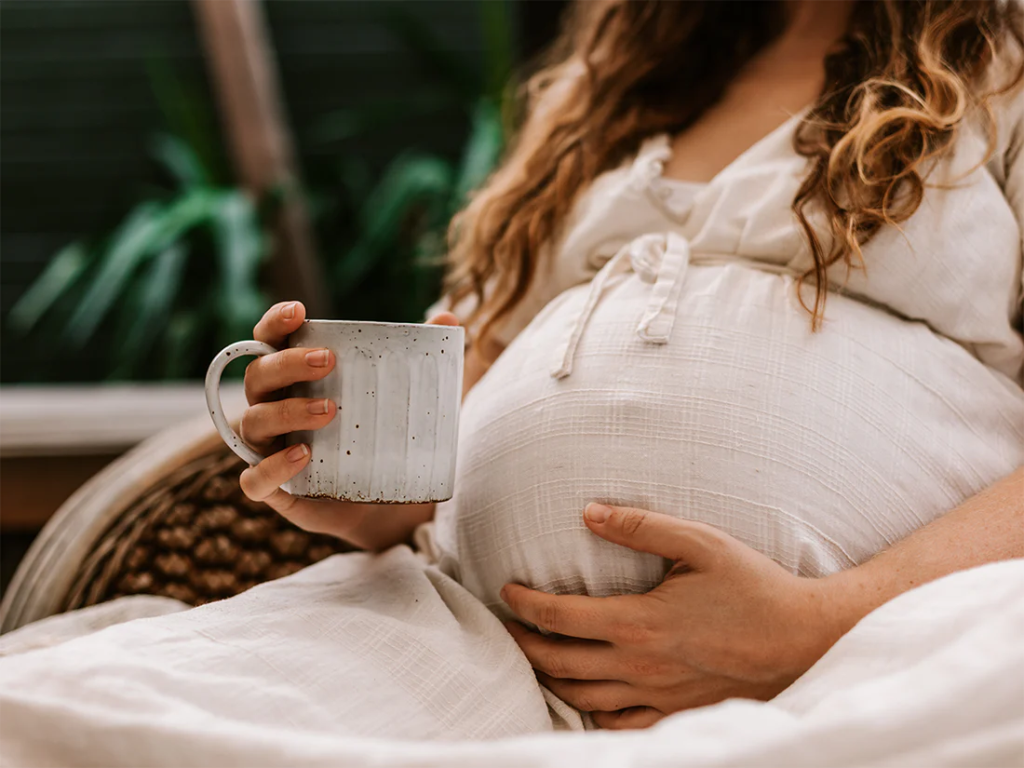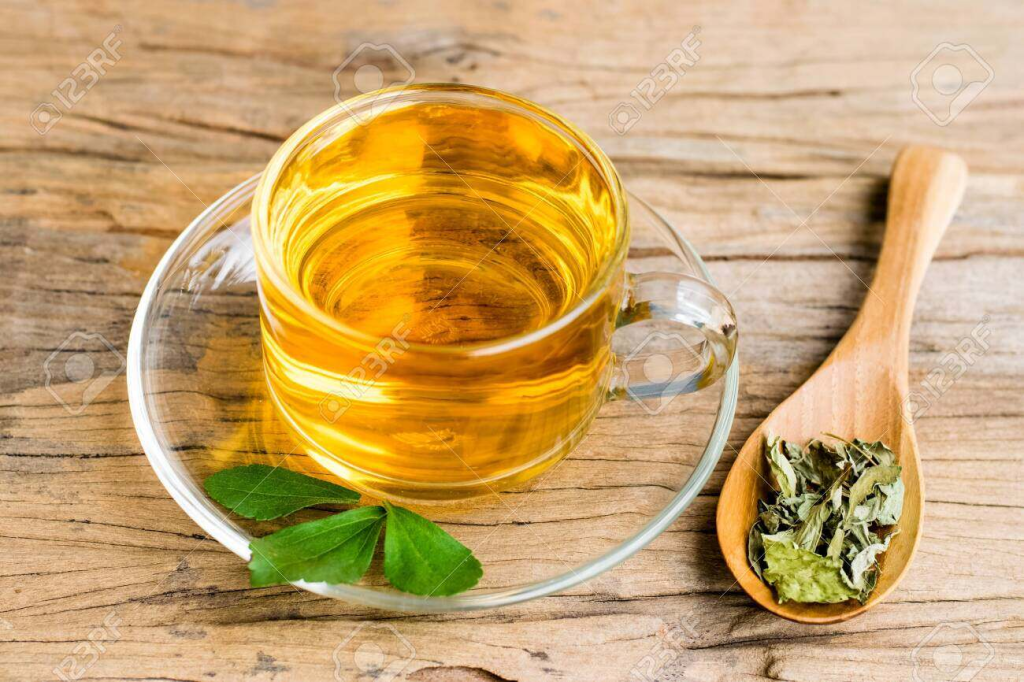During pregnancy, the health and safety of both mother and baby are of utmost importance. Choosing healthy herbal teas can not only help reduce stress but also provide numerous health benefits. Here are some of the best teas for pregnant women that you should know about.
Tea is a well-loved drink worldwide, including a lot of pregnant women. Drinking tea brings a lot of soothing properties and health benefits. It also comes with a variety of flavors to choose from, there’s a taste for everyone!
However, when it comes to being pregnant, there is a new set of considerations for what to consume, including your favorite teas. Understanding which teas are safe during pregnancy is important for maintaining both your health and that of your baby.

In this blog, we’re going to explore the types of teas you can enjoy safely, those you should avoid, the potential risks associated with tea consumption during pregnancy, and some alternative drinks to consider if you’re trying to fight off your cravings. So, keep reading ahead!
CAN PREGNANT WOMEN DRINK TEA?
To address the elephant in the room, yes, pregnant women can drink tea. However, it’s important to be mindful of what tea you’re drinking and how much of it are you consuming in a day. Tea contains various compounds, including caffeine, tannins, and certain herbs, which can affect pregnancy differently. Moderation and choosing the right type of tea are key. Generally, herbal teas are considered safer than non-herbal teas, but even within these categories, there are exceptions. Consulting with a healthcare provider before making tea a regular part of your diet during pregnancy is always a good idea.

WHAT TYPES OF TEA CAN PREGNANT WOMEN DRINK?
While it’s generally safe for pregnant women to drink tea, there are only a handful of teas that should be consumed in moderation. The following types of teas give a range of health benefits, from aiding digestion to reducing nausea, and can be a comforting addition to your daily routine.
1. Ginger Tea Benefits:
If you struggle with nausea and morning sickness, then ginger tea is going to be your sidekick throughout your pregnancy journey! It contains natural anti-inflammatory and antioxidant properties that boost your overall health. Ginger tea also helps with your digestion, reducing bloating and gas. Keep in mind that you should drink it moderately, as excessive amounts might lead to heartburn or stomach discomfort.

- Reduces Nausea and Morning Sickness: Ginger tea is a popular choice to alleviate nausea and morning sickness during the first trimester of pregnancy. The active compounds in ginger, such as gingerol, help to soothe the stomach and reduce queasiness.
- Improves Digestion: Ginger helps stimulate digestive juices and enzymes, reducing symptoms of indigestion and bloating, which are common during pregnancy.
2. Peppermint Tea Benefits:
Peppermint tea is a refreshing and soothing choice for pregnant women. It helps to relieve any digestive issues you may have such as bloating, gas, and nausea. The cooling menthol in peppermint tea can also help ease headaches and improve overall mood. If you’re the type to have issues with acid reflux, drinking too much of this can sometimes exacerbate these symptoms. This green tea-infused peppermint brew is a great refresher to have for those days where you feel bloated.

- Eases Digestive Issues: Peppermint tea can soothe the stomach and alleviate issues such as indigestion and gas, providing comfort during pregnancy.
- Reduces Nausea: The menthol in peppermint has a calming effect on the stomach, which can help reduce feelings of nausea and morning sickness.
3. Chamomile Tea Benefits:

- Promotes Relaxation: Chamomile tea is known for its calming effects, helping to reduce anxiety and stress, which is beneficial during pregnancy.
- Improves Sleep Quality: Chamomile can aid in improving sleep quality, which is often disrupted during pregnancy due to discomfort and hormonal changes.
4. Rooibos Tea Benefits:
Rooibos tea is a popular choice for pregnant women due to its rich antioxidant content and lack of caffeine. This South African red tea is gentle on the stomach and can help improve digestion. It’s also rich in calcium and magnesium, which are essential for fetal development. Additionally, its anti-inflammatory properties can provide relief from common pregnancy ailments such as heartburn and indigestion. Check out this organic rooibos drink that has a berry twist!
- Caffeine-Free: Rooibos tea is naturally caffeine-free, making it a safe option for pregnant women.
- Rich in Antioxidants: Rooibos is packed with antioxidants, which help protect the body from oxidative stress and support the immune system.
5. Raspberry Leaf Tea Benefits:
Raspberry leaf tea is often recommended during the third trimester as it is believed to help tone the uterus and potentially ease labor. It is rich in vitamins and minerals like iron, calcium, and magnesium, which are beneficial for both mother and baby. However, it’s important to consult with a healthcare provider before starting raspberry leaf tea, especially earlier in pregnancy, as it can stimulate uterine contractions.

- Strengthens the Uterus: Raspberry leaf tea is known for its ability to tone and strengthen the uterine muscles, which can help prepare the body for labor.
- Nutrient-Rich: This tea is rich in vitamins and minerals such as vitamin C, vitamin E, and calcium, which are essential for the development of the baby.
6. Stevia Leaf Tea Benefits:

- Controls Sweet Cravings: Stevia leaf tea is a healthy alternative to sugary drinks, helping to manage blood sugar levels and prevent excessive weight gain during pregnancy.
- Calorie-Free: Stevia is a natural, calorie-free sweetener, making it a safe option for pregnant women concerned about their sugar intake.
7. Jasmine Tea Benefits:

- Reduces Stress and Anxiety: Jasmine tea has a soothing effect on the nervous system, helping to reduce stress and anxiety levels.
- Improves Mood: The gentle aroma of jasmine can help lift mood and provide a sense of calm and relaxation.
WHICH TEAS SHOULD YOU AVOID DRINKING DURING PREGNANCY?
While many teas are safe, some should be avoided due to their potential risks during pregnancy. These include teas with high caffeine content and certain herbal teas that can have harmful effects.
Tea with high caffeine content
High-caffeine teas, such as black tea and certain types of green tea, should be consumed sparingly. Excessive caffeine intake during pregnancy is linked to an increased risk of miscarriage, low birth weight, and preterm birth. It is recommended to limit caffeine intake to less than 200 mg per day, which is roughly equivalent to one 12-ounce cup of coffee. Monitoring and moderating your caffeine consumption is crucial for a healthy pregnancy.
How to Safely Brew Tea for Pregnant Women
Check Ingredients: Always check the ingredients to ensure the tea does not contain any harmful substances for pregnancy.
Moderation is Key: Drink tea in moderation, as consuming large amounts can have adverse effects. Aim for 1-2 cups per day.
Avoid Caffeine: Steer clear of teas containing caffeine, as excessive caffeine intake can affect sleep and increase anxiety.
POSSIBLE RISKS OF DRINKING TEA DURING PREGNANCY
While tea can be a comforting and beneficial beverage, there are potential risks associated with its consumption during pregnancy. These risks vary depending on the type of tea and the amount consumed.
Menstrual Bleeding
Herbal teas that contain licorice root or ginseng can affect hormone levels and potentially lead to menstrual bleeding.
Miscarriage
Teas that contain strong herbs like parsley or sage, are known to have uterine-stimulating properties that can increase your risk of miscarriage. These herbs can cause contractions and should be avoided during pregnancy, particularly in the first and second trimesters.
Birth Defects
Drinking excessive amounts of teas with high levels of catechins (found in green tea) can interfere with folic acid absorption. Folic acid is crucial in the early stages of pregnancy to prevent neural tube defects in the developing fetus. Thus, limiting your intake of such teas is important to ensure sufficient folic acid levels.
Nausea
While ginger tea can help alleviate nausea, other teas with strong flavors or high acidity might worsen it. Teas like black tea or teas with strong spices might be too harsh on the stomach, especially during the first trimester when morning sickness is common. Choosing milder teas can help avoid exacerbating nausea.
Diarrhea
Drinking herbal teas that have laxative properties like senna or cascara, can cause diarrhea. Diarrhea can lead to dehydration and nutritional deficiencies, which are particularly concerning during pregnancy. It’s best to avoid these teas and drink ones that support healthy digestion.
TEA ALTERNATIVES DURING PREGNANCY
If you prefer to avoid tea altogether or want to diversify your beverage options, there are several alternatives you can switch to that provides hydration and nutrition without worrying about possible risks.
Warm Water
Warm water is the safest and simplest alternative. It can help with digestion and keep you hydrated without any risk of harmful compounds. Adding a slice of lemon or a splash of fruit juice can make it more enjoyable and provide a slight flavor boost.
Sparkling Water
Sparkling water is another great option, offering the refreshing fizz of soda without the sugar or caffeine. It can be a good choice for staying hydrated and satisfying your cravings for carbonated beverages. Make sure it’s free of added sugars and artificial sweeteners for the healthiest choice.
Fruit Juice
Fruit juices provide essential vitamins and minerals, making them a nutritious alternative to tea. Choose 100% fruit juices that don’t contain added sugars. Moderation is key, as fruit juices can be high in natural sugars and calories.
Vegetable Juice
Vegetable juices are packed with nutrients and can be a great way to boost your intake of essential vitamins and minerals. Look for low-sodium options and consider making your own at home to ensure they are fresh and free of additives.
Broth
Broths, whether chicken, beef, or vegetable, are nourishing and hydrating. They are particularly beneficial if you are experiencing morning sickness or have a reduced appetite. Broths can also provide necessary electrolytes and help keep you hydrated.
Soup
Similar to broth, soups are a comforting and nutritious option. Choose soups rich in vegetables and lean proteins for a balanced meal. Avoid high-sodium canned varieties and opt for homemade or low-sodium options when possible.
Milk
Milk is an excellent source of calcium and vitamin D, both of which are important during pregnancy. It provides hydration and nutrition in one. If you are lactose intolerant or prefer non-dairy options, fortified plant-based milks like almond, soy, or oat milk can be good alternatives.

Drinking tea is definitely refreshing but something to keep an eye on when you’re pregnant! It’s important to differentiate which teas are safe and which should be avoided.
Herbal teas such as ginger tea, peppermint tea, chamomile tea, rooibos tea, raspberry leaf tea, stevia leaf tea, and jasmine tea are excellent choices for pregnant women. These teas are not only safe but also offer numerous health benefits, helping both the mother and baby stay healthy throughout the pregnancy. Choose and consume these teas wisely to enjoy their full benefits.


